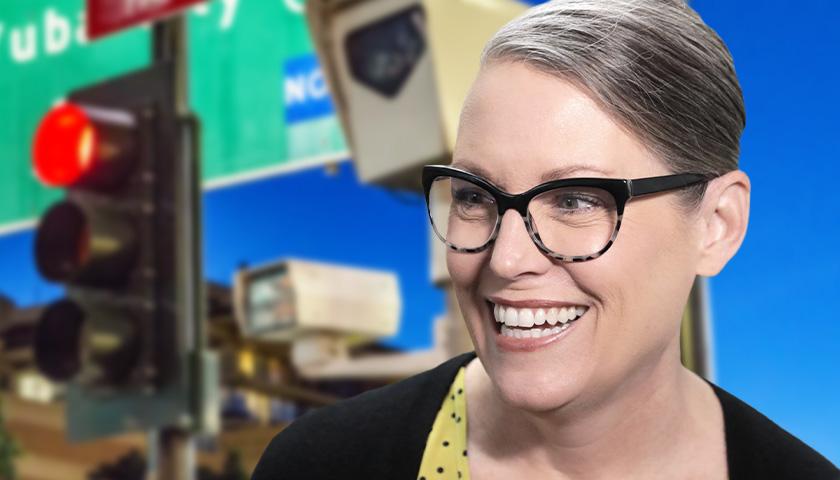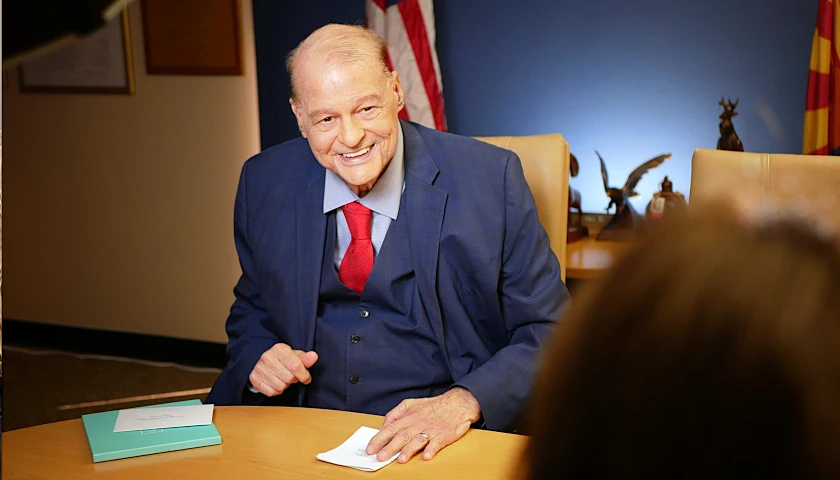by Cole Lauterbach
Gov. Katie Hobbs on Friday vetoed legislation that would have outlawed red-light cameras in Arizona.
In her veto message of Senate Bill 1234, Hobbs said “local leaders and law enforcement officers across the state” reached out to her about the effect photo radar enforcement has had on road safety.
“Research indicates that photo radar cameras demonstrate effectiveness in changing driver behavior and decreasing fatal accidents, especially in vulnerable areas like school zones,” Hobbs said. “This bill’s ban of photo radar would eliminate an important tool for law enforcement that allows for a more efficient allocation of limited police resources.”
Research on traffic cameras has been conflicted. While most studies indicate that red-light cameras reduce “t-bone” accidents where a vehicle collides into the side of another, other studies have shown increases in rear-end collisions due to drivers abruptly stopping when a light turns yellow. Because those accidents are generally less often fatal, supporters of photo radar equipment say the cameras are justified.
The studies don’t often address speeding, which is typically another infraction dealt out by the cameras.
State Sen. Wendy Rogers, R-Flagstaff, said the cameras are “cash cows” for municipalities and the companies that operate them.
“Cities and towns use the photo radar scheme to collect millions of dollars from unwitting statewide drivers each year. This traffic citation scam enables third-party companies to exploit Arizona drivers, a scheme never contemplated under state law,” said Rogers in a statement. “These surveillance systems ignore the root causes of safety concerns on our roads. They do little to eliminate immediate threats like drunk drivers, reckless drivers or speeders. Instead, photo radar cameras provide quick cash for the coffers of unelected municipal bureaucrats.”
Rogers said in a hearing that the companies who operate red-light cameras keep roughly 75 percent of the fines incurred. Another 10% of the money received, Rogers notes, goes to a political program that contributes to political campaigns if a candidate pledges to abide by Arizona Clean Elections program guidelines.
The bill passed with bipartisan support but not enough to override the veto.
– – –
Cole Lauterbach is a managing editor for The Center Square covering the western United States. For more than a decade, Cole has produced award-winning content on both radio and television.
Photo “Katie Hobbs” by Gage Skidmore. CC BY-SA 2.0. Background Photo “Red Light Camera” by Tony Webster. CC BY-SA 2.0.





